Mozambique: Washing cars on a street corner as a means to escape a life of crime
Mozambique attacks: Groups use “cover of Islam” to gain acceptance – Islamic Council
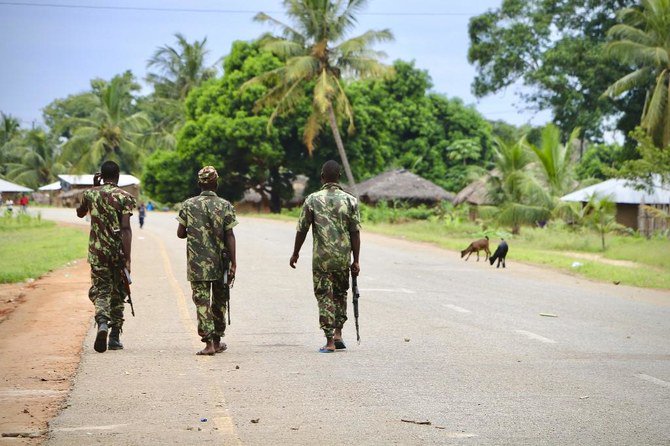
File photo: AFP
The Islamic Council of Mozambique has warned that the armed groups responsible for the attacks in Cabo Delgado are using “the cover of Islam” to recruit followers in the region, which is home to a significant number of Muslims.
“They know nothing about our religion and are using the cover of Islam to gain more acceptance in Cabo Delgado, an area that has many Muslims,” said Sheikh Abdul Magid António, representative of the Islamic Council in Nampula, Mozambique’s most populous province, with about 5.7 million inhabitants.
Neighbouring Cabo Delgado province, Nampula has been identified by the authorities as one of the provinces chosen by the armed groups for the recruitment of young people, with the Mozambican police periodically announcing the dismantling of networks set up for this purpose and calling on communities to cooperate with Defence and Security Forces.
“In our province, they have chosen rural areas on the coastal side. They arrive in these places, [presenting themselves] as Muslims, and entice young people with jobs and scholarships in madrasas. They know that the parents of these young people are poor and poorly informed,” the sheikh noted.
Abdul António recounted to Lusa News Agency the many instances of false Muslims trying, on multiple occasions since the attacks began, to recruit young people in the districts of Moma, Angoche, Mogincual, Mossuril and Ilha de Moçambique, in the province of Nampula.
“The Islamic Council instructed delegations to report all of these occasions and, at central level, almost every day we receive information stating that there are people circulating in these districts promising scholarships and jobs. We immediately asked the communities to notify the authorities,” he said.
Abdul António recalled that, when the incursions of armed groups began in Cabo Delgado in October 2017, the Islamic Council informed the authorities about the existence of people with “ideologies contrary to the commandments of Islam”.
“We alerted the government from Day One,” he noted.
For the Muslim leader, the groups have other goals and plans so far unspecified, but their ambitions are “totally distant from the Islamic commandments”.
“If they were Muslims, they would never vandalise our mosques. They disrespect everything and even kill Muslims,” Abdul António said, adding that it was wrong to call them jihadists ’, as no holy war had been declared.
The sheikh called for greater vigilance to stop the incursions of these groups, saying that the armed violence in Cabo Delgado must be seen as a challenge for all Mozambicans.
“We, as an Islamic Council, have tried to invest in raising awareness among Muslim communities so that they do not embrace this type of ideology. Not only in Nampula, but also in Zambézia [province, centre of the country] and even in Cabo Delgado. But it is necessary to see the problem of violence in northern Mozambique as a challenge for everyone. Only then can we really understand what is happening,” he concluded.
Cabo Delgado, a region where megaprojects for the extraction of natural gas are moving forward, is grappling with attacks by armed groups classified as a terrorist threat which have already killed at least 500 people in the past two-and-a-half years.
On Tuesday, after a session of the Council of Ministers, Mozambican Interior Minister Amade Miquidade said that the Defence and Security Forces had shot and killed a total of 129 terrorists in Cabo Delgado province in April alone,
Mozambican authorities report that 162,000 civilians have been affected by the armed violence.
At the end of March, the towns of Mocímboa da Praia and Quissanga were invaded by a group which destroyed infrastructure and hoisted its flag over a Defence and Security Forces of Mozambique barracks.
In a video released on the Internet at the time, an alleged ‘jihadist’ militant said the attacks by armed groups in northern Mozambique were aimed at imposing Islamic law on the region.
The video, apparently recorded in one of the occupied towns, was the first message ever released by the supposed authors of the attacks.



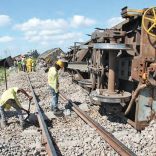
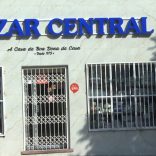
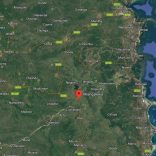
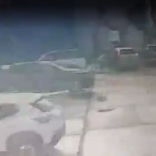
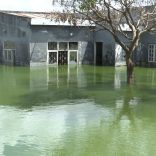



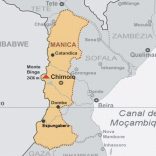
Leave a Reply
Be the First to Comment!
You must be logged in to post a comment.
You must be logged in to post a comment.